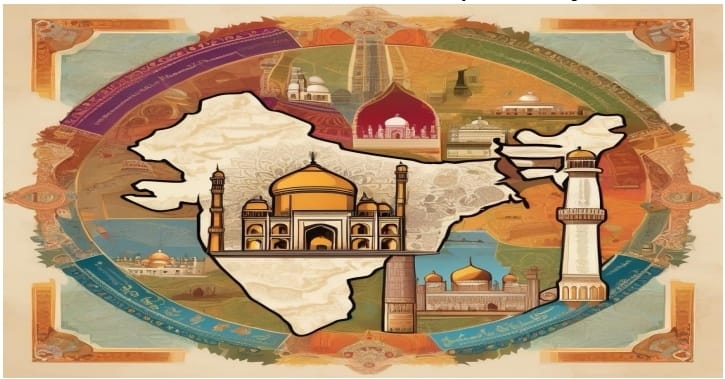The Current State of the Waqf Board and Waqf Law in India: A Tale of Irony and Injustice

In a land governed by one of the most robust constitutions, where equality before the law is the bedrock of justice, we find an anomaly that raises more than just eyebrows. The Waqf Board and its associated laws have become a thorny issue in India, sparking debates and controversies that seem to have no end. The problem is not new; it started centuries ago, but it has morphed into something far more complex and contentious in the modern era.
What is Waqf?
To understand the current situation, let’s first delve into what Waqf actually is. In Islamic tradition, Waqf refers to a charitable endowment, typically involving the donation of land or property for religious or philanthropic purposes. This practice dates back to the time of Islamic invasions when conquerors would dedicate conquered lands to Allah. These lands were then used to support the poor, fund jihad, or provide shelter for travellers and slaves.
Waqf in India: A Historical Overview
Waqf made its way into India with the advent of Islamic rule. Following independence, the Indian government recognised the importance of managing these religious endowments and created the Waqf Board to oversee them. The Waqf Act was first enacted to regulate these properties, ensuring that they were used for the purposes for which they were intended.
However, the real twist in the tale came with the amendments to the Waqf Act over the years, which only served to empower the Waqf Board further. Leaders of the time, in their wisdom, felt that this was necessary to preserve the sanctity of these endowments. But what was intended as a measure of protection has, over time, turned into a mechanism of unchecked power.
A Tale of Two Men and One Land
Imagine this: a Hindu man, let’s call him Rajesh, owns a piece of land. He has all the documents to prove his ownership. Along comes another man, Ahmed, who claims that this land was a Muslim graveyard decades ago and should be under the Waqf Board’s control. The Waqf Board, in its wisdom, conducts a nominal survey and issues a directive: the land now belongs to the Waqf.
In a country governed by law and constitution, where equality is supposed to be a fundamental right, how is this possible? Well, it’s all thanks to the amendments to the Waqf Act, particularly those made in 1995. These amendments allowed the formation of a Waqf Tribunal, a body outside the regular justice system, exclusively to deal with Waqf-related disputes.
Now, if Rajesh wants to challenge this decision, he cannot simply go to a regular court. Instead, he must take his case to this tribunal, which, surprise surprise, is composed entirely of members from the Muslim community. If the tribunal rules against him, Rajesh has nowhere else to turn. His land, rightfully his, is lost to the Waqf Board.
Adding to the irony is Section 40 of the Waqf Act, which requires public consideration when a property is taken under Waqf. Sounds fair, doesn’t it? But here’s the catch: there’s no requirement for a public hearing. The Waqf Board can simply talk to a couple of people in the area, and if they say the land was a graveyard fifty years ago, that’s good enough. And to make matters worse, Section 40(3) places the burden of proof on Rajesh. He must now prove that his land is not a graveyard.
The 2013 Waqf Amendment: The Final Nail in the Coffin
The situation became even more dire with the Waqf Amendment of 2013, which granted the Waqf Board virtually unlimited power to declare any land as Waqf property. No scientific research is required, no past records need to be consulted, and, most concerning of all, the Indian judiciary has no role to play. The Waqf Board can simply claim any land, and that’s that. The fact that a significant portion of Waqf land is in urban areas only adds to the complexity, as the Board can obstruct any urban reform it deems inconsistent with “Allah’s rule.”
A Comparison: Other Religious Communities in India
You might think, “Well, the Muslim community is a minority, so perhaps they deserve some special protections.” But let’s compare this with the situation of other religious communities. The Sikh community has the Sikh Gurudwaras Act, which gives them administrative rights over their Gurdwaras, but that’s about it. The so-called majority Hindu community is even worse off under the Hindu Religious Endowment Act, where Hindu temples are under complete government control, with their only role being to assist in administration under government supervision.
The 2024 Proposed Amendments: A New Dawn or the Same Old Story?
Fast forward to 2024, and the political landscape is buzzing with the proposed amendments to the Waqf Act. The government, in its wisdom, has decided to introduce changes aimed at making the law “feasible and completely equal”—a noble goal, indeed.
Among the key proposals is the requirement that all Waqf properties be registered with the District Collector’s Office. This move is intended to ensure that Waqf properties are properly evaluated and managed. The bill also proposes that any government property identified as Waqf property will not be deemed as such unless validated by the District Collector.
Oh, but the plot thickens! The opposition parties, always ready to jump into the fray, have cried foul, claiming that these amendments are nothing but a thinly-veiled attempt to deprive the Muslim community of their land, assets, and “freedom to manage religious affairs.” Apparently, equality and justice are only acceptable when they serve the interests of certain groups.
And here’s where things get really juicy. The BJP, the very party that is pushing these amendments, was in opposition when the Congress was busy enacting the 1995 and 2013 amendments that created this mess in the first place.
Yet, what did they do back then? Absolutely nothing! No cries of injustice, no attempts to protect the rights of non-Muslims who might fall victim to the Waqf Board’s unchecked powers. But now, when they have the chance to fix what Congress created, the opposition suddenly discovers their love for justice and minority rights. Isn’t it ironic?
The Reality Check: Who Really Benefits from the Waqf?
Let’s also address the few Muslims who are up in arms about the “loss of their rights.” Here’s a question for you: when was the last time you heard of ordinary Muslims benefiting from Waqf properties? Chances are, most Muslims don’t even know what Waqf is, let alone how it benefits them. Just like many other institutions, Waqf is controlled by a select few who reap the rewards while the rest of the community remains unaware or uninvolved.
Conclusion: A Question of Justice and Political Opportunism
So, where does that leave us? The Waqf Board, with its near-absolute authority over land, is now the third-largest landowner in India after the Indian Railways and the Ministry of Defence. But here’s a question for you, dear reader: which community holds the most expensive land under their umbrella?
Think about that as you consider the state of justice and equality in a country where the law of the land can be so easily overridden by an archaic, religiously biased system. Are we really living up to the ideals of our constitution, or are we allowing outdated laws to create an unequal society?
And as you ponder this, keep in mind the political circus that surrounds it all, with each party trying to score points, while the real issues of justice and fairness get buried under the weight of rhetoric and opportunism.
Article by
Vikas Dubey
Younginker
Raipur, Chhattisgarh